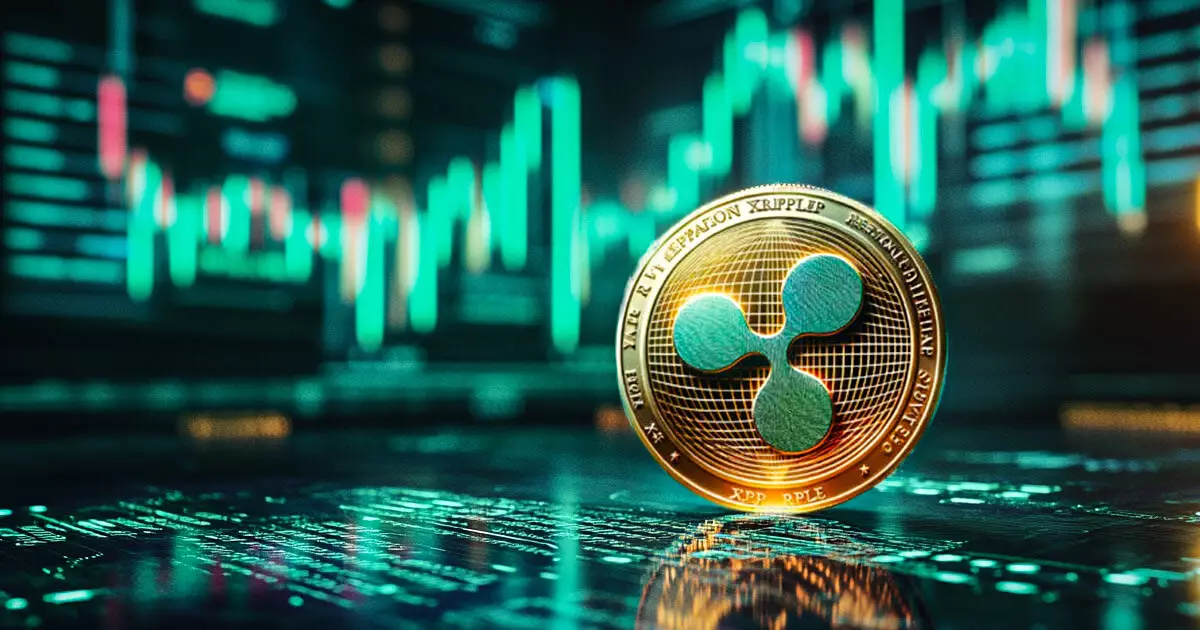Ripple, the company behind XRP, has found itself entangled in a protracted legal battle with the U.S. Securities and Exchange Commission (SEC) that could have ramifications far beyond the immediate financial implications for the company and its investors. With rumors swirling that the SEC is nearing a resolution in this long-standing lawsuit, it is increasingly important to understand why the outcome may shape the regulatory landscape for cryptocurrencies in the U.S. and possibly the world. Ripple’s struggle isn’t just about XRP but reflects broader issues of regulatory clarity and fairness in the rapidly evolving financial ecosystem.
The Ripple Expectation Spike
After rumors of a potential settlement emerged, XRP experienced a notable spike in price, rising from $2.14 to $2.24 in merely an hour. This surge underscores how closely the market reacts to regulatory news and the profound implications these legal battles have on cryptocurrency values. Interestingly, while investors see the value of XRP rising, this scenario begs the question of whether such price volatility tied to regulatory decisions can be justified or viewed as beneficial in the broader financial market.
Dissecting the Settlement Talks
According to credible sources, the discussions between Ripple and the SEC have reached a critical juncture, yet terms remain contentious. Ripple’s legal team argues that if the SEC’s new leadership seeks to provide more regulatory clarity, then the penalties imposed on them—stemming from an August ruling—should be revisited. The crux of their argument hinges upon the notion that accepting the previous ruling would equate to an admission of guilt, which many would argue runs counter to principles of justice and fair play.
This stance reveals a darker shadow of our regulatory environment: if the SEC’s position shifts, what does it mean for the legitimacy of their past enforcement actions? This evolving landscape reflects the SEC’s ongoing struggle to define its role in a sector where innovation often outpaces regulation. Ripple’s experience could serve as a precedent and reveal a potential pathway forward for other firms battling similar regulatory issues.
Judicial Overreach or Necessary Regulation?
Ripple’s case has set the stage for a pivotal clash regarding how securities laws apply to digital currencies. Judge Analisa Torres ruled that Ripple’s sales to institutional investors were indeed securities offerings, warranting significant penalties. The fact that other digital currencies may also face similar scrutiny raises pressing concerns about judicial overreach into an emerging market that has yet to find its footing. If the judicial branch oversteps and labels innovative practices as illegal, it could stifle technological advancement and entrepreneurial spirit.
Though Ripple’s penalty of $125 million looms large, it brings with it the question of fairness. If new interpretations of crypto regulations lead the SEC to reconsider enforcement measures, then should companies like Ripple be left in limbo under outdated interpretations?
The SEC’s Changing Leadership
With a new acting chair and pro-crypto Commissioners on the SEC’s board, there appears to be a cultural shift within the organization. As they seek to move away from what many have described as “regulation by enforcement” towards a more constructive engagement with crypto firms, the implications for Ripple and others could be profound. The establishment of the Crypto Task Force aims to create a framework designed to foster innovation while ensuring regulatory compliance. This could be a game-changer not only for Ripple but for the entire industry.
However, it raises another critical issue: what happens to the cases that have already led to penalties and sanctions? Just as personal accountability must apply to individuals, do regulatory bodies not owe it to industry stakeholders to acknowledge and adapt to these new realities?
The Market’s Response: A Double-Edged Sword
XRP currently stands at the heart of market dynamics, having earned its place as a top-ranking cryptocurrency by market capitalization. As of now, with a valuation of $129.33 billion, XRP’s fate hangs in the balance. The optimism that drives XRP’s price appreciation following rumors or settlements can be perceived as a double-edged sword, adding volatility to an already fragile market.
At this juncture, the overall crypto market is valued at a staggering $2.68 trillion, signaling a strong interest and investment in digital assets. Still, this heightened volatility poses a significant risk to investors who may not fully comprehend the legal complexities at play.
Through this spectacle surrounding Ripple and the SEC, it becomes increasingly clear that the fate of one company may hold implications that shape not just the regulatory path forward but the future of an entire industry. As we brace ourselves for potential outcomes—both positive and negative—the attention on Ripple’s lawsuit is not simply about XRP but about the very essence of innovation, fairness, and regulatory integrity in the financial world.

